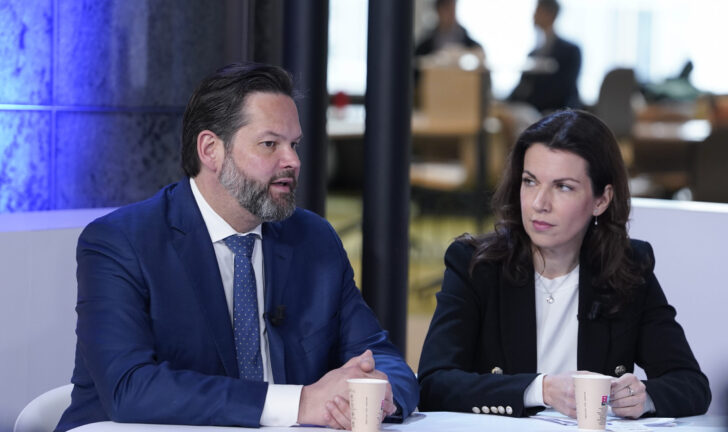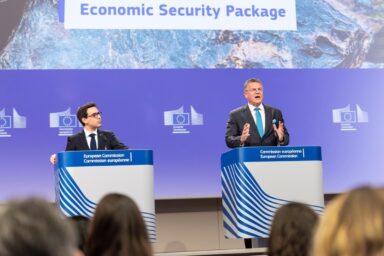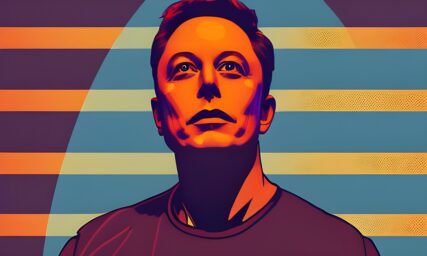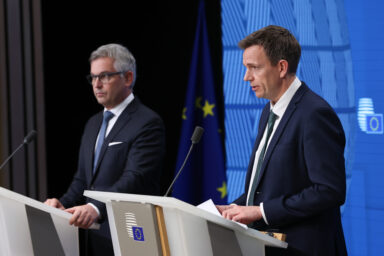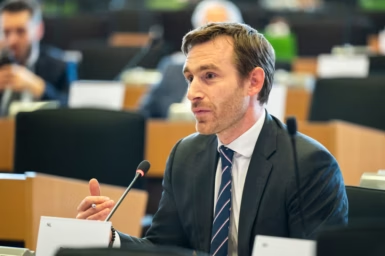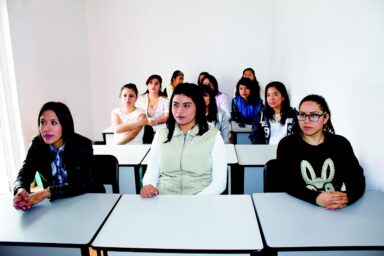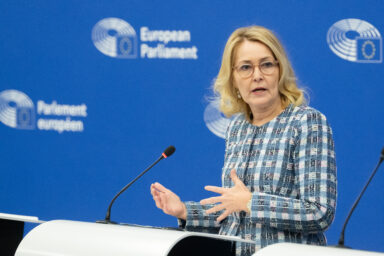The European Union has failed to find a satisfactory system of dealing with mass immigration, and further integration of EU policies may not be realistic in the current political climate. Breaking the issue into smaller parts would help, Katarína Cséfalvayová recommends. In the latest episode of the EU Perspectives podcast, the Slovak Director of the Institute for Central Europe and ex-MP discussed the sensitive issue with MEPs Lukas Mandl (EPP/AT) and Tomáš Zdechovský (EPP/CZE); Camille Le Coz, Director of Migration Policy Institute Europe; and Başak Yavçan, Head of Research of the Migration Policy Group, in Brussels on 18 March.
Few topics stir emotions as intense – and lend themselves to weaponisation as easily – as the issue of immigration. The European Union hasn’t handled its own refugee influx satisfactorily, but there is still a way out of the woods, Katarína Cséfalvayová thinks. The director of the Institute for Central Europe and fomerly head of the Slovak Parliament’s Foreign Affairs Committee sees the issue as part of a broader pattern.
“In a wider context, in the past twenty years, the EU has gone through the biggest enlargement ever on the eastern side,” she told the EU Perspectives podcast. “It has gone through a global pandemic. It has gone through Brexit, the financial crisis, outbreak of war on our doorstep. And I think it’s safe to say that, every single of these issues, we went through it united and came out stronger than before.”
When it comes to migration, however, the Union has not been as successful, Ms Cséfalvayová pointed out. “It remains the one pain point that we haven’t managed to go through in a way to provide closure and to introduce a final system to deal with it once and for all.”
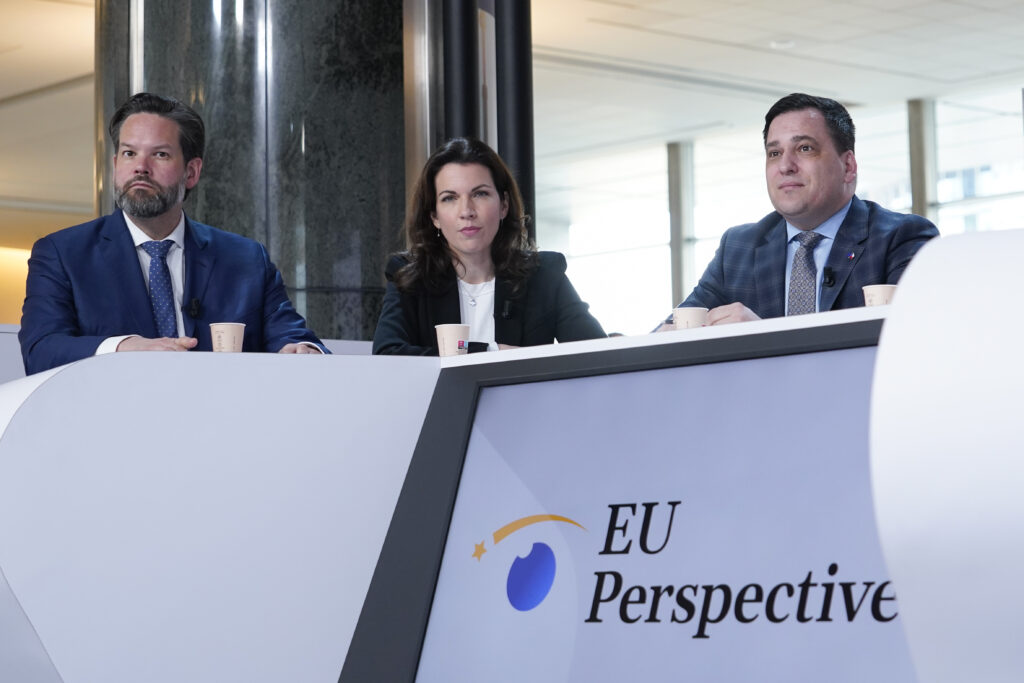
The Slovak leader of the Danube Tech Valley Initiative at Globsec sees two principal reasons why this is important. “First, our adversaries, whether it is Russia or other players in the international arena, have identified that this is the pain point in the EU, and it is also a point where disinformation campaigns can be run very successfully,” she said. “This is a topic where European citizens can go against one another, Europe’s politicians go against one another. So, if we want to be united and to avoid these hybrid actions, then we need to be unified on migration.”
Adversaries of democracy in- and outside of the Union have used the issue to drive a wedge between Europeans and their institutions. Moreover, they may be able to do so in the future as well. “The second reason is, obviously now the lines of power in international relations, and the entire world as we know it, are shifting. We don’t know when to expect another influx of refugees, of asylum seekers,” Ms Cséfalvayová remarked before listing the potential sources of future refugee waves.
You might be interested
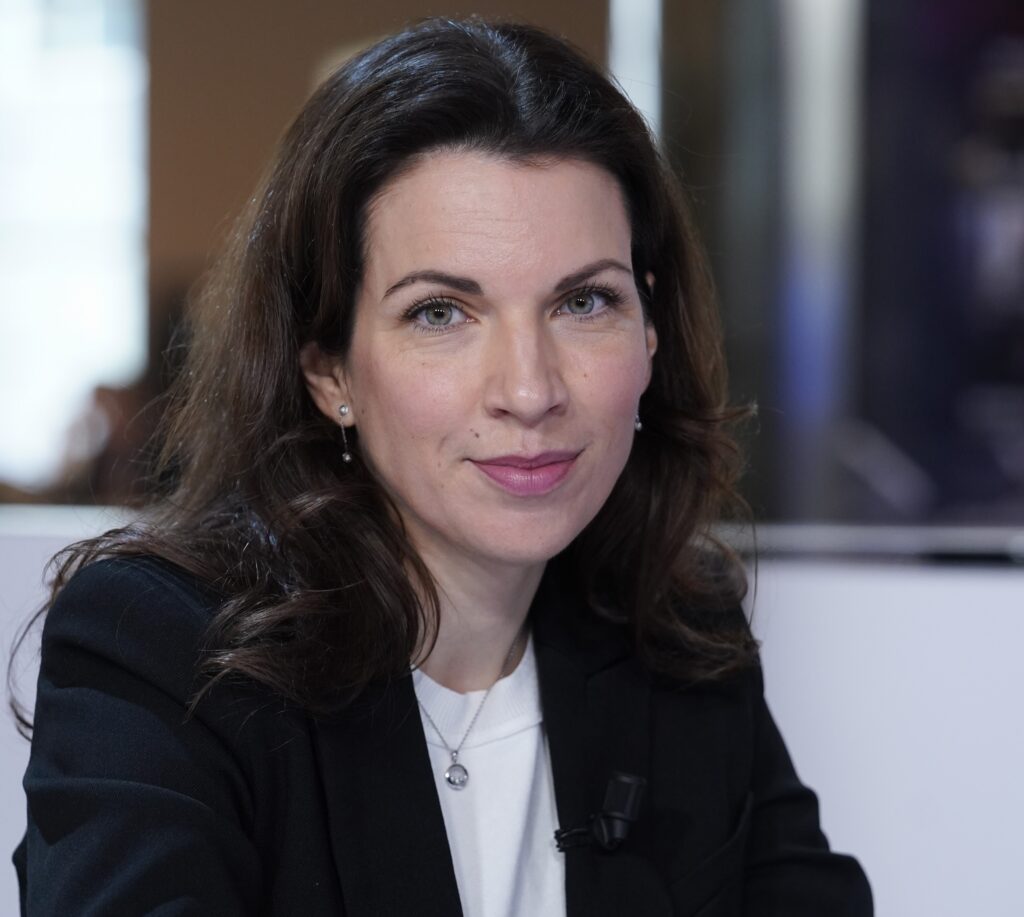
“The regime in Syria has been overthrown. We don’t know what (is going to happen there). The countries that are now holding the majority of Syrian refugees, the neighbouring countries such as Turkey, for instance – they might decide to send them back. And these people might decide to come to Europe instead,” she mentioned a conflict that for many in Europe appears too far away to affect European policies – and politics – directly.
“We don’t know now, that Russia has lost its playing field in Syria, will it now instead focus on another country, say Libya? That can create again a conflict that will generate a lot of refugees. Then there is climate migration, what with everything that is going on. So we have to be prepared for a next wave of refugees, and we have to be prepared with a (functioning) system of migration and asylum management,” she issued a straighforward warning.
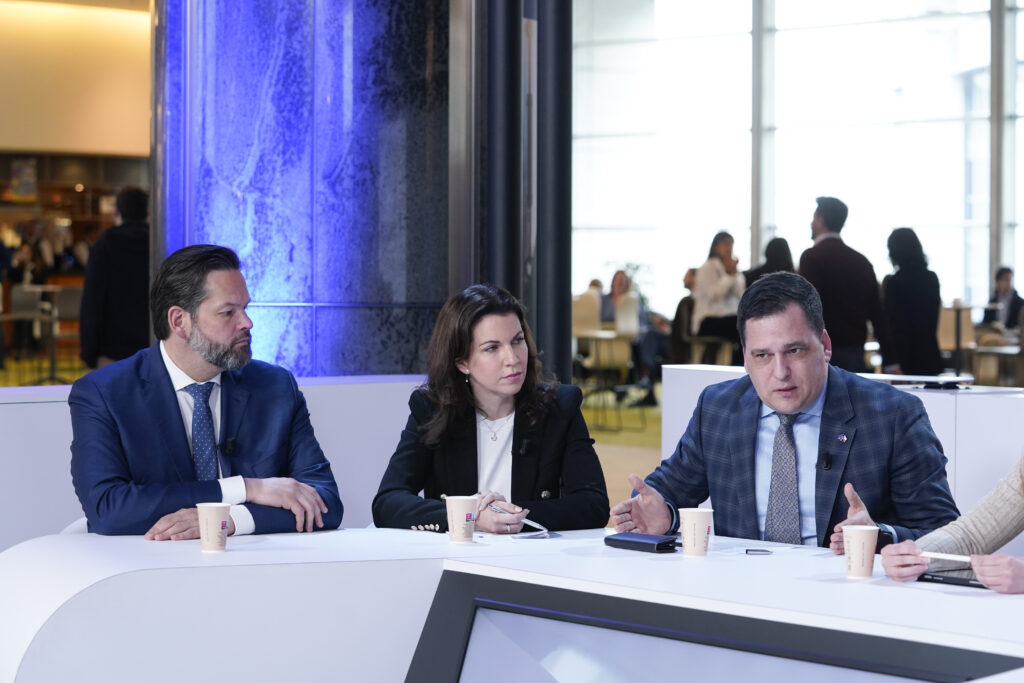
The obvious question is, how should the EU go about it? How can such a system be brought to life today, when much of Europe’s political scene is a bloodied battlefield? Is the Union doing enough – and can it do more at all?
For today’s politicians, migration policies are something of a minefield walk, the debaters agreed. The MEP Tomáš Zdechovský (EPP/CZE) spoke in favour of a common European solution. „We have to do our best to solve the problem as the European Union. (…) I think it really is a shame that, in the 21st century, the European system doesn’t work as one.“
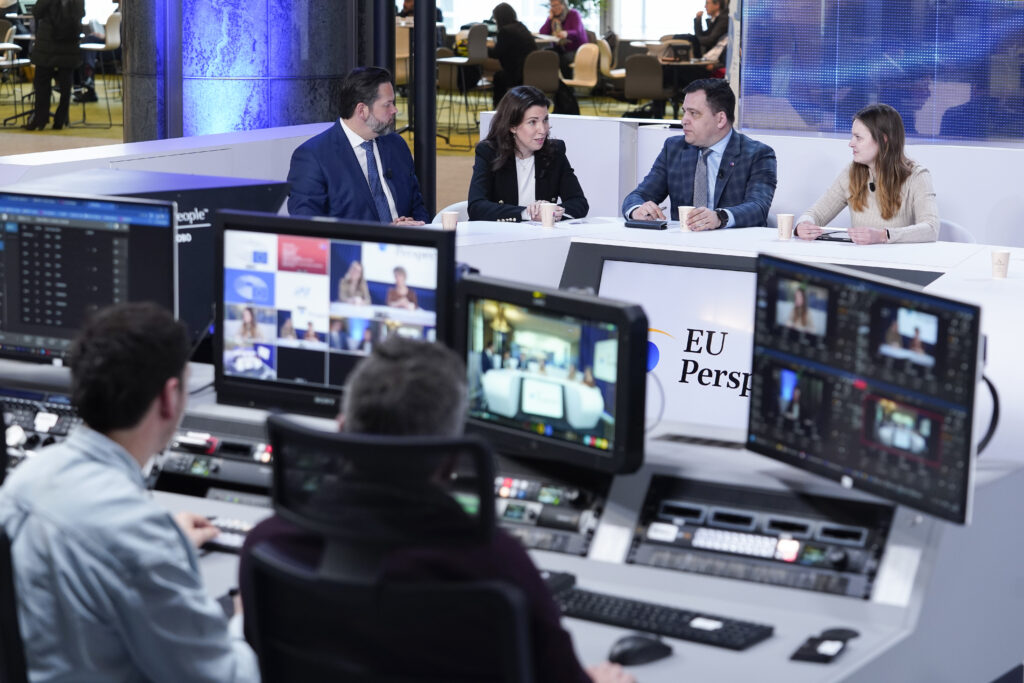
Ms Cséfalvayová did not consider this feasible. “In an ideal world, in an area like the European Union, and in particular the Schengen area, I think that it would make the most sense if asylum and migration were governed by the EU. Unfortunately, now it’s perhaps not the right time to call for more integration; or it’s perhaps not realistic to have more integration in European policies,” she said, and suggested that rolling with the punch may be the only option left.
“This is a very good example of breaking that issue down to smaller things. That’s how the return policy should be handled, obviously; because it’s more effective, more beneficial, less costly, and it will close the loopholes in the system – abused by those who were denied asylum in one country and then applied in another country,” she offered a piece of practical advice.
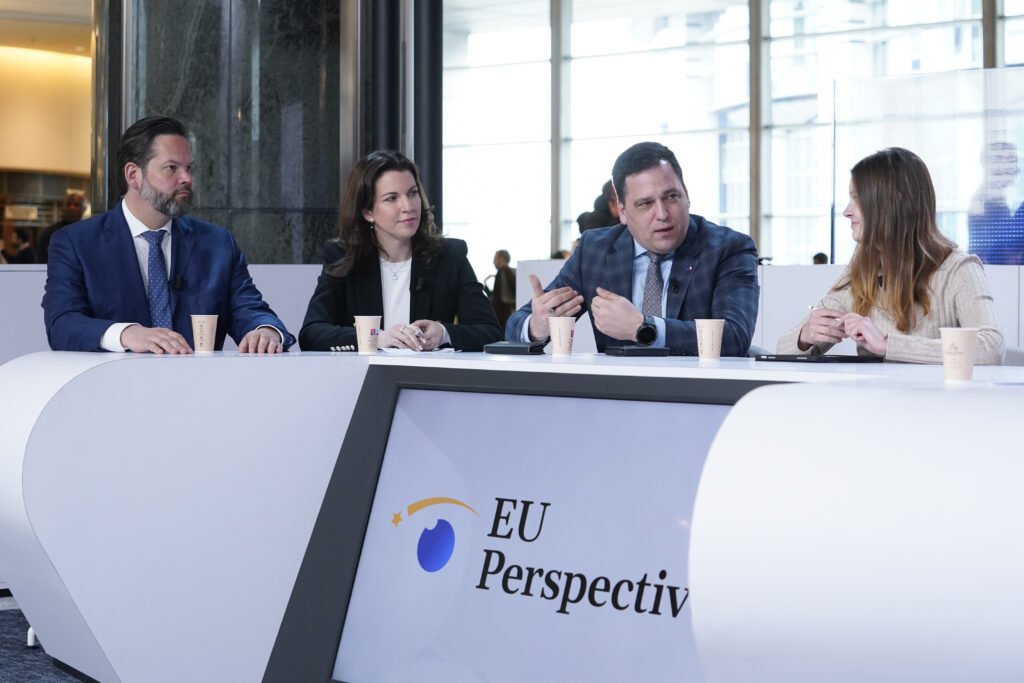
Lukas Mandl, Mr Zdechovský’s fellow EPP Member of the European Parliament, agreed. “The European Union can and will not solve this on its own. It’s rather the local level, the regional level, the national level, of course. And it’s not only political – it is up to each and every person, especially the ones who come to our countries, to work as best as they can on integration.“
Ms Cséfalvayová then mentioned a strategically important effect. “From the citizens point of view, I think it is very important that we try to to restore the trust of the citizens. We have a rules-based order, a lot of rules that the citizens have to respect, and then they are not happy to see the order being abused. If the system decides – in due process, by the book, whether it is too strict or not – that a person doesn’t meet the criteria to be granted an asylum, and this person is still in the EU, then, of course, it doesn’t elicit much trust of our citizens.”
She then came across as a bit of an optimist. “This is a very important, and I think this is what the European Commission is trying to achieve – to gain the trust of the citizens that there are solutions. Not extreme solutions, but common European, normal, rational solutions that can be applied.”
“It’s about time,“ Mr Mandl remarked dryly in response. „We have to act quickly.“
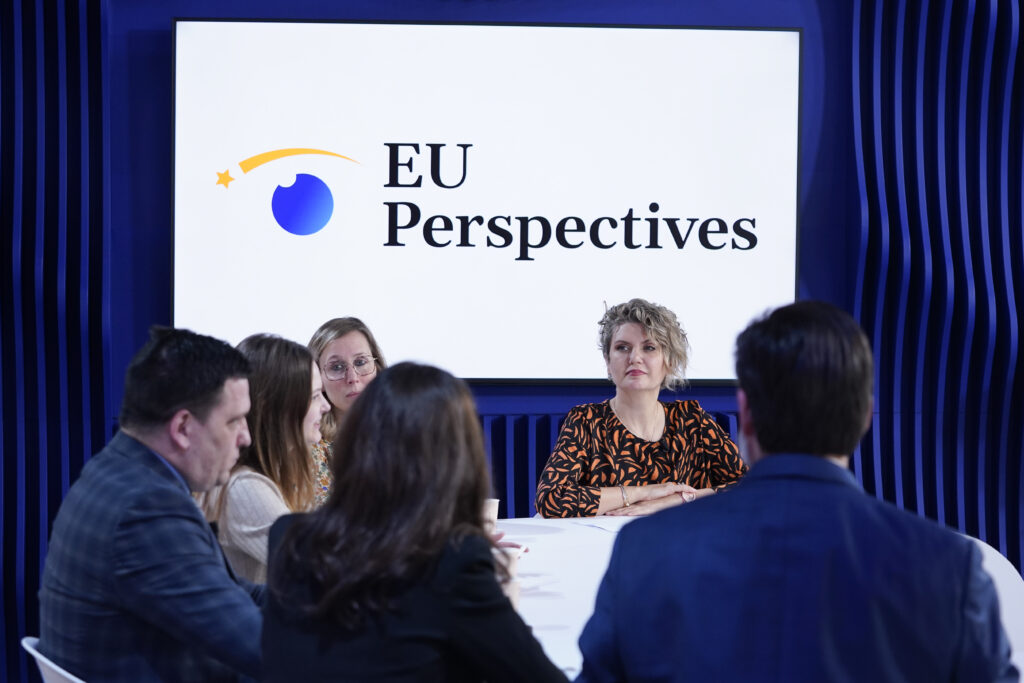
Acting quickly, of course, requires a degree of mutual understanding, something not always obviously present. Ms Cséfalvayová then showed her gradualist mettle. “Even if we cannot achieve unity on everything, we need to find the least common denominator and try to move forward,” she said.
“There is this… disease, if you will, in some of the countries of our region. I think it was Viktor Orbán who said it for the first time: ‘Do not listen to what I say, but do what I do.‘ It has been criticised many times, but perhaps the rhetoric is sometimes directed towards the domestic audience, and then the acts might differ. We need to wait and see. There is no way around it,” the Slovak academician vouched for patience, a rare commodity in today’s politics.
